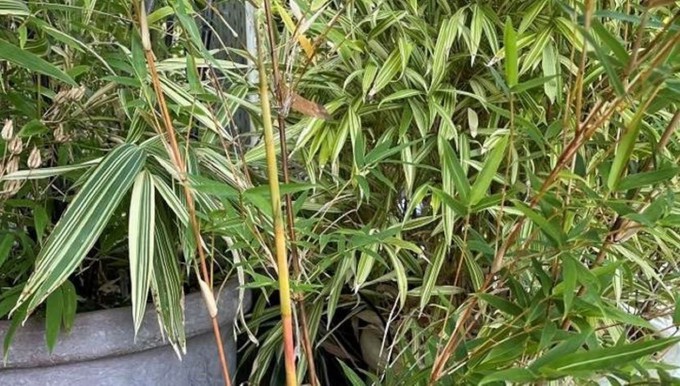
More than 30 clubs and vendors will offer wide range of plants, crafts and garden stuff

Looking for an unusual addition to your garden? Mad Man Bamboo Nursery of Rocklin will offer unusual non-invasive bamboos at Shepard Center's Fall Sale. Mad Man Bamboo Nursery
Need more plants or garden stuff? Or how about a new hobby? Or are you looking for expert garden or crafts advice?
Get all that and much more at the annual Fall Sale at Shepard Garden and Arts Center. On Oct. 7 and 8, the clubs that call Shepard home will offer a wide selection of plants, books, materials, tools and creations.
The sale is as varied as the individual clubs, from African violets to perennials and ceramics to weaving. Expect to find all sorts of stuff for growing things plus plants, flowers, garden art, jewelry, ceramics, textiles, art and more. Hungry? There will be food, too.
In addition, patrons can get tools sharpened in exchange for a donation. It’s time to get pruners and loppers ready for winter pruning.
Another interesting service: Hole drilling. Want to turn a container into a suitable planter? Here’s your chance to get holes drilled in pots, also for a donation.
The sale is not limited to clubs. More than 30 clubs and vendors are expected including several popular local plant sellers such as Mad Man Bamboo Nursery and its specialty bamboos.
Besides raising funds for clubs, the combined sale represents a chance to introduce Sacramento-based organizations to prospective members.
Each participating club will staff a table of volunteers who can offer advice on their areas of expertise such as plant recommendations or care. It’s also an opportunity to get to know about these local organizations and what they have to offer.
Fall Sale hours are 10 a.m. to 4 p.m. Saturday, 10 a.m. to 3 p.m. Sunday. Admission and parking are free.
Shepard Center is located at 3330 McKinley Blvd., Sacramento.
Details and directions: https://www.sgaac.org/.
Comments
0 comments have been posted.Sacramento Digs Gardening to your inbox.
Sites We Like
Garden Checklist for week of July 21
Your garden needs you!
* Keep your vegetable garden watered, mulched and weeded. Water before 8 a.m. to reduce the chance of fungal infection and to conserve moisture.
* Feed vegetable plants bone meal, rock phosphate or other fertilizers high in phosphate to stimulate more blooms and fruiting. (But wait until daily high temperatures drop out of the 100s.)
* Don’t let tomatoes wilt or dry out completely. Give tomatoes a deep watering two to three times a week.
* Harvest vegetables promptly to encourage plants to produce more. Squash especially tends to grow rapidly in hot weather. Keep an eye on zucchini.
* Pinch back chrysanthemums for bushy plants and more flowers in September.
* Remove spent flowers from roses, daylilies and other bloomers as they finish flowering.
* Pinch off blooms from basil so the plant will grow more leaves.
* Cut back lavender after flowering to promote a second bloom.
* It's not too late to add a splash of color. Plant petunias, snapdragons, zinnias and marigolds.
* From seed, plant corn, pumpkins, radishes, winter squash and sunflowers.